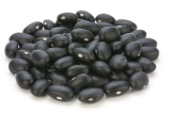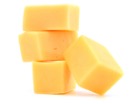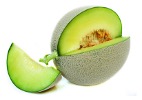Contribute
| Combining Foods For Better Digestion |
Dr. Indrajeet Tyagi and Geetha Patil
04/11/2023
What is a balanced approach to food combining? The concept of food combining denotes the idea that some foods digest well together while others do not. According to Ayurveda, it is an essential to understand how to eat properly. Each food has a distinct combination of tastes and energies and a matching effect on both the digestive system and on the body as a whole. Therefore, careful food combining can significantly improve the quality of digestion, support the body in receiving a right amount of nourishment, and positively affect your overall health. In the modern world, most people are accustomed to eating a number of foods that do not usually digest well together (like fruit with nuts, or beans with cheese) and certain combinations disturb the digestive tract more than others do. Combining foods with completely different energetics can overwhelm the digestive fire (agni) and can cause indigestion, fermentation, gas, bloating, and the creation of toxins and skin diseases. So, you need to overcome your habits of combining wrong foods and understanding some of these symptoms and paying attention to how you combine foods that can provide insight, healing, and improved health. Remember, food combining tips are not about imposing strict rules but they are the powerful Ayurvedic tools for improving your digestive health and overall wellness. What food combinations to avoid or decrease? The following list highlights incompatible foods and offers suggestions for more appropriate combinations. It is a helpful guide, not an exhaustive list. Be aware of other combinations that do not work for your body. Honor those instincts. Embracing good food combining habits gets easier with time and practice and changes your overall sense of wellness over time. • Keep your proteins simple and separate. • Grains are recommended with just about everything (other grains, vegetables, beans, and more) but fruits. • Dairy is a protein that is best eaten alone or with some grains. (It is best to not mix it with other animal proteins.) • The “heavier†the food, the heavier it can be on your digestion. Sometimes we need heavier foods, but be aware of the state of your digestion in the moment. • Fruit is best eaten alone, or cooked in small amounts when combined with other food. • This combination of cheese with potatoes, bell peppers, tomatoes, eggplants, cayenne peppers, paprika, tobacco, henbane, belladonna, datura etc. is simply too taxing for the digestive fire. • Beans and cheese are similar in that they both tend to be heavy and are often difficult to digest. • The combination of cucumber and tomato is advised to be avoided. Foods Compatible Incompatible Beans Grains [wheat, oats, rice, corn (maize), barley, sorghum (Jowar), Bajra, Raagi, rye, and millet], vegetables, other beans, nuts, and seeds Fruit, milk, cheese, yogurt, eggs, meat, and fish Butter & Ghee Grains, vegetables, beans, nuts, seeds, meat, fish, eggs, and cooked fruit Butter may not combine with other foods as universally as ghee Cheese Grains and vegetables Fruit, beans, eggs, milk, yogurt, and hot drinks Milk Best enjoyed alone. *Exceptions: rice pudding, oatmeal, dates, and almonds Any other food (especially BANANAS, cherries, melons, sour fruits, yeasted breads, eggs, yogurt, meat, fish, kitchari, and starches) Yogurt Grains and vegetables Fruit, beans, MILK, cheese, eggs, meat, fish, nightshades, and hot drinks Eggs Grains and non-starchy vegetables MILK, cheese, yogurt, fruit (especially melons), beans, kitchari, potatoes, meat, and fish Fruit Other fruits with similar qualities, (i.e. citrus together, apples & pears, a berry medley) Any other food (aside from other fruit) *Exceptions: dates with milk, and some cooked combinations Lemons Usually okay with other foods if used in small amounts as a garnish or flavoring. Cucumbers, tomatoes, milk, and yogurt *Note: Lime can be substituted for use with cucumbers and tomatoes. Melons Other melons (in a pinch), but it’s better to have each type of melon on its own. EVERYTHING, especially dairy, eggs, fried food, grains, and starches. *Note: Melons should be eaten alone or not at all. Grains Beans, vegetables, other grains, eggs, meat, fish, nuts, seeds, cheese, and yogurt Fruit Vegetables Grains, beans, other vegetables, cheese, yogurt, meat, fish, nuts, seeds, and eggs Fruit and milk Nightshades Other vegetables, grains, beans, meat, fish, nuts, and seeds Fruit (especially melon), cucumber, milk, cheese, and yogurt *Note: Nightshades include peppers, eggplant, potatoes, and tomatoes. Hot Drinks Most foods, unless the hot drink contains other foods (i.e. milk, fruit, almond milk, rice milk). Mangoes, cheese, yogurt, meat, fish, and starches Leftovers Ideally, just other leftovers from the same meal. Preferably not more than 24 hours old. Freshly cooked foods Raw Foods Other raw foods, ideally in small quantities Cooked foods (especially in large quantities) Following the wisdom of food combining slowly helps us to develop an advanced awareness around how our dietary choices affect our overall health. This invaluable ability help you how quickly you are able to replace improper food combinations with more supportive ones.













![]()
![]()
You may also access this article through our web-site http://www.lokvani.com/

Dr. Indrajeet Tyagi
M. R. Medical College, Kalaburagi, Karnataka

Geetha Patil
Cambridge, MA














